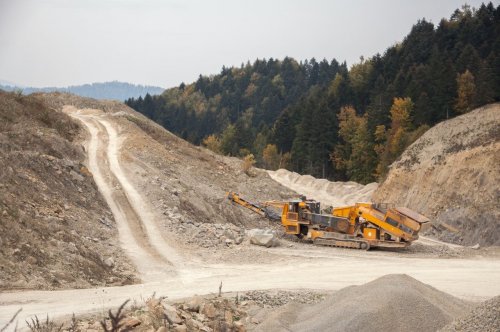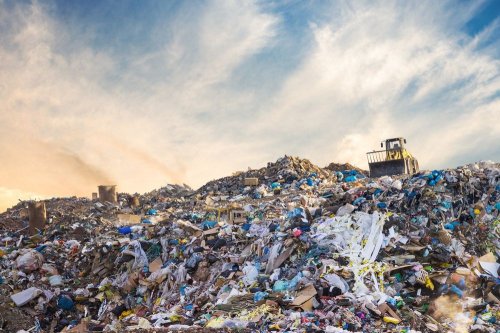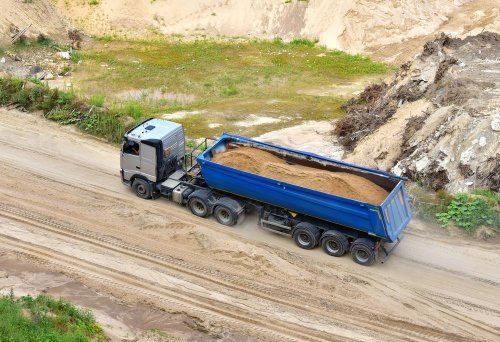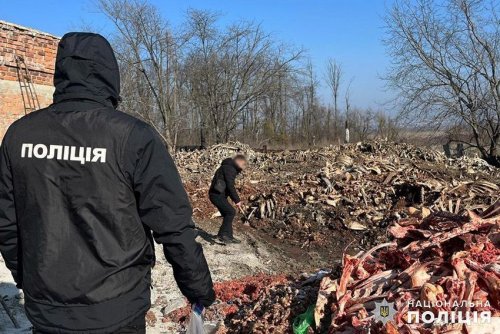Eco-activists criticized the recovery plan of Ukraine, which was presented on Conferences on restoration of Ukraine in Lugano, Switzerland, and called it Luhansk shame.
They believe that the plan contains unnecessary construction projects with corruption risks and those that are not friendly for the environment, reports the Ukrainian Environmental Protection Group - UNCG on Facebook.
Environmentalists noted that construction projects, although positive for nature, are the least transparent.
Including:
- 10 "exemplary" national parks;
- 15 rehabilitation centers for wild animals;
- 15 biotransitions on the way of animal migration;
- 9 forest seed centers for growing tree seedlings.
In addition, the plan proposes the expansion of the mineral and raw material base of Ukraine, which can increase the number of fellings, as well as the transition to a mechanized way of harvesting timber using harvesters and forwarders (modern logging machines that allow to increase the speed of forest felling several times).
Eco-activists are afraid that the state will not bring to justice violators of agrarians, because the plan provides for conducting educational and informational campaigns to inform agricultural producers about the importance of observing the regimes of coastal protection strips and water protection zones.
The clause on improving the EIA procedure and shortening the terms of its implementation can untie the hands of eco-conscious businesses, in particular, foresters and natural gas workers.
The UNCG also resented the government's plans to deregulate and simplify access to the mineral resources.
They noted that the construction of an irrigation system for 1 million hectares and the development of reclamation systems will have a negative impact on Ukrainian rivers. And the return of agricultural land to economic circulation will lead to new destruction of steppes and self-seeded forests.
Also, in the paragraph on renewal of Ukrainian forests, there is talk of felling old forests, which apparently need renewal.
The condition of the rivers will also be negatively affected by the construction of 3.5 GW of hydroelectric power plants and pumping hydroelectric power plants and the development of an international network of inland waterways in accordance with Ukraine's international treaties.
"The documents contain really correct and priority measures for nature protection. But far from all. We can only hope that the titanic plans of the Ukrainian government will remain, as is often the case, only plans. But even the fact that what is written above is publicly available information is very embarrassing. Because we are talking about the money of countries that are friendly to Ukraine," said environmentalists.
They also added that, together with 25 other public organizations from Ukraine and the EU, they turned to the European Commission with proposals for priority measures for the protection of nature in Ukraine. Environmentalists expressed the hope that Ukraine's support will include funds for the implementation of these measures, and not those presented by the Ministry of Environment.
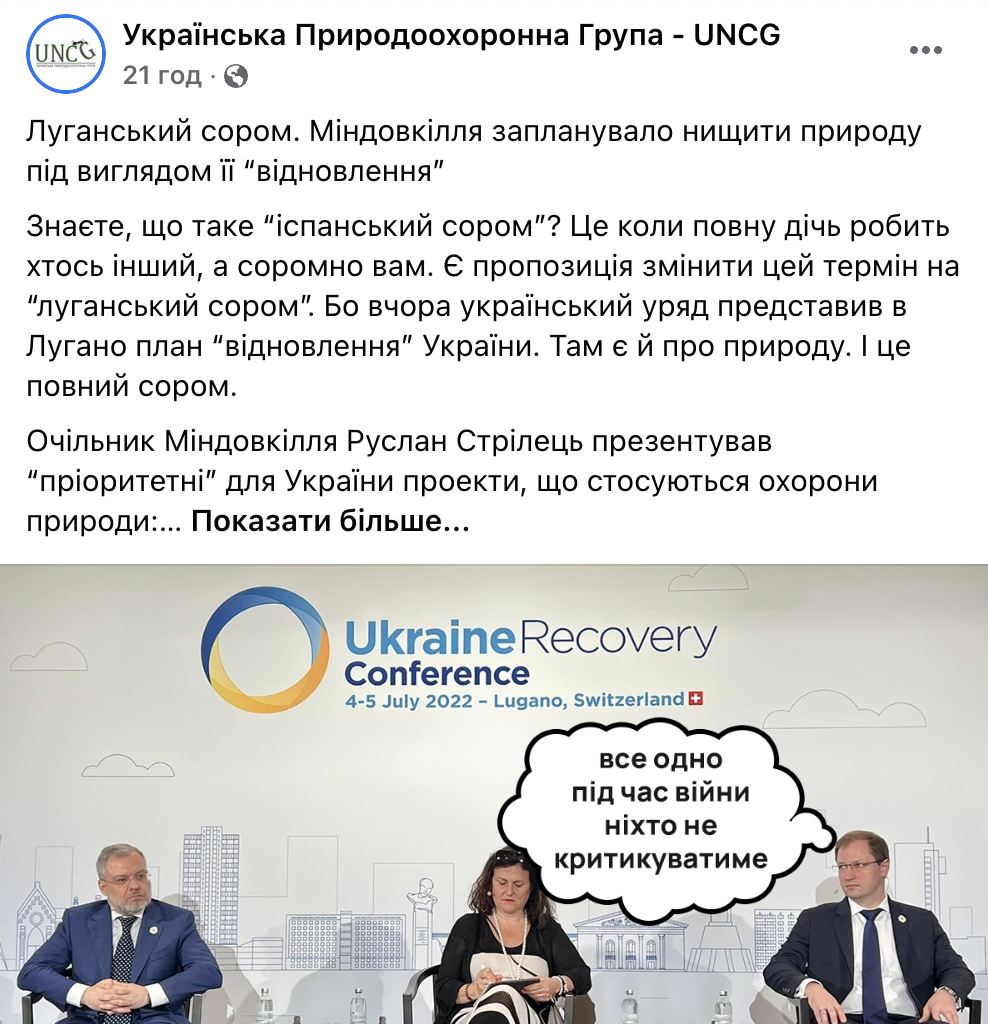
Natalia Gozak, executive director of the Ecodia Center for Environmental Initiatives on Facebook, also joined in the criticism.
She noted that the plan, which was worked on by 2.5 thousand experts and NGOs, has nothing to do with the needs of the environment and future generations.
She noted the most acute points of the leisure component:
- completing the construction of new nuclear facilities instead of removing obsolete and dangerous units;
- setting up its own eco-uranium mining cycle;
- three times more renewable energy for the production of hydrogen for export than for Ukraine;
"We will continue to breathe coal dust and suffer from a shortage of water, but there is export," Gozak commented.
- mining;
- development of its own gas production, including shale, instead of decarbonization;
- plans to sell green electricity to the EU.
She also expressed her hope that the EU does not recognize atom/gas as green energy in its taxonomy.
Gozak supported initiatives to create 10 national parks and rehabilitation centers for wild animals, although this is not enough, and plans for energy efficiency.
“The development of the economy is certainly necessary, but it is possible on clean technologies and with a real priority on sustainable development. To do this, it is necessary not only to involve the public in the dialogue, but also to listen to it,” she said.
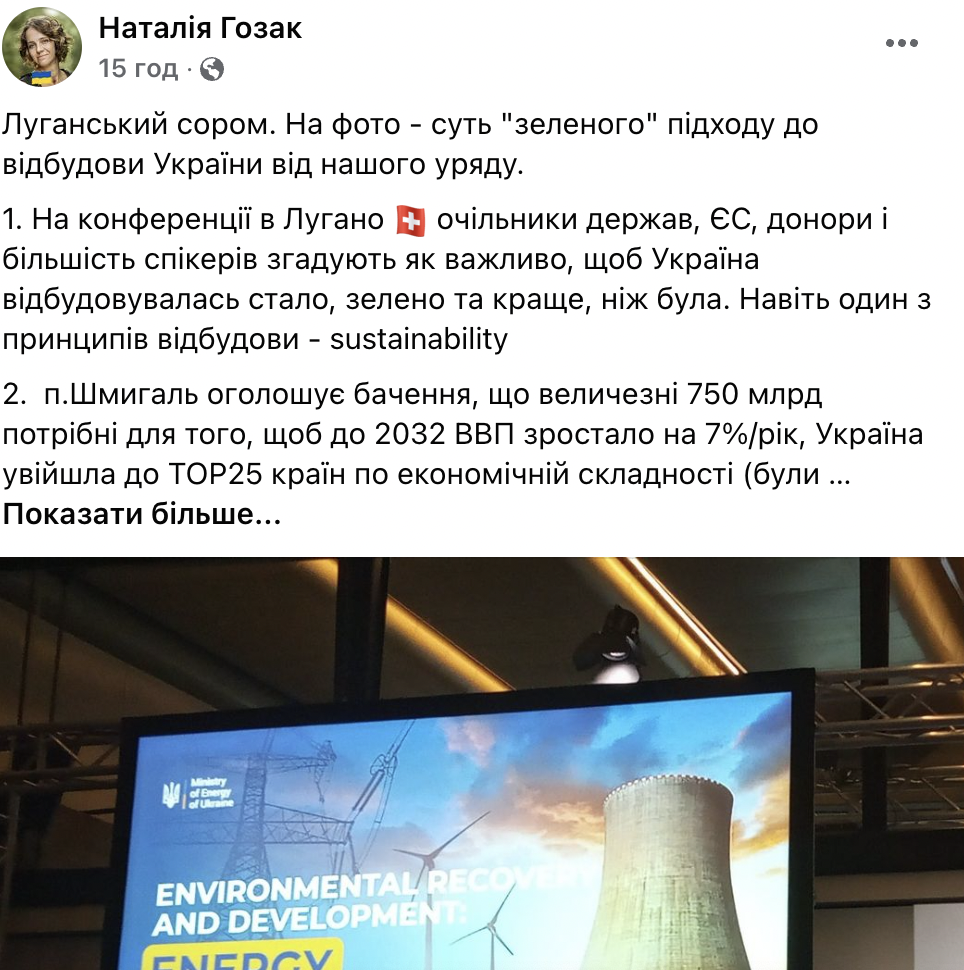
"This probably the worst state of indescribable shame for Ukraine since Yanukovych was president. Against the background of military and civilian victories and losses, against the background of the colossal support of the vast majority of European and North American states and a small cohort of states of the global south, we want to be worthy of trust and that support," said the head of the "Zero Waste Lviv" Iryna Myronova on Facebook. - "But our statesmen take the stage and the "Luhansk shame" begins.
She noted that the proposals do not address investments in waste prevention, re-use and sorting stations. The proposed construction of waste processing plants involves working with mixed waste, i.e. no on-site sorting is envisaged.
These enterprises separate and stabilize organic waste, remove metal and glass, inert materials, and the rest are crushed and prepared for burning in cement plants or waste incineration plants with the production of thermal or electrical energy.
She was also outraged by Prime Minister Denys Shmyhal's appeal to support the inclusion of coal and nuclear energy in the green taxonomy until 2035.
"In the list of the European Investment Bank, waste incineration is not among the projects that are supported. However, there is composting of organic waste, there is the creation of sorting centers, there is the production of energy from bio-waste, but all these points are absent in our proposal," Myronova said.
Waste incineration, even with energy recovery, is a source of greenhouse gas emissions, because the majority of incinerated waste is polymers made from oil and gas, fossil fuels. According to the principles of the circular economy, waste that does not have material processing value should not be generated.
In addition, the separate collection of organic waste would release at least 40% of the volume of waste. The composting process is relatively simple and the construction of the stations is cheap.
Thanks to composting, you can achieve:
- reduction of mixed household waste by half;
- reduction of methane (greenhouse gas (GHG)) emissions at landfills;
- production of compost suitable for application to agricultural land: a source of useful microorganisms, bioavailable mineral compounds, a moisture retainer in the soil, etc.;
- carbon sequestration in soils and reduction of GHG emissions from soil carbon loss;
- introducing bioavailable nitrogen fertilizers into the soil and increasing the assimilation of mineral nitrogen fertilizers (and this is a reduction of GHG emissions from nitrogen fertilizers and a reduction in the need for their production).
- job creation.
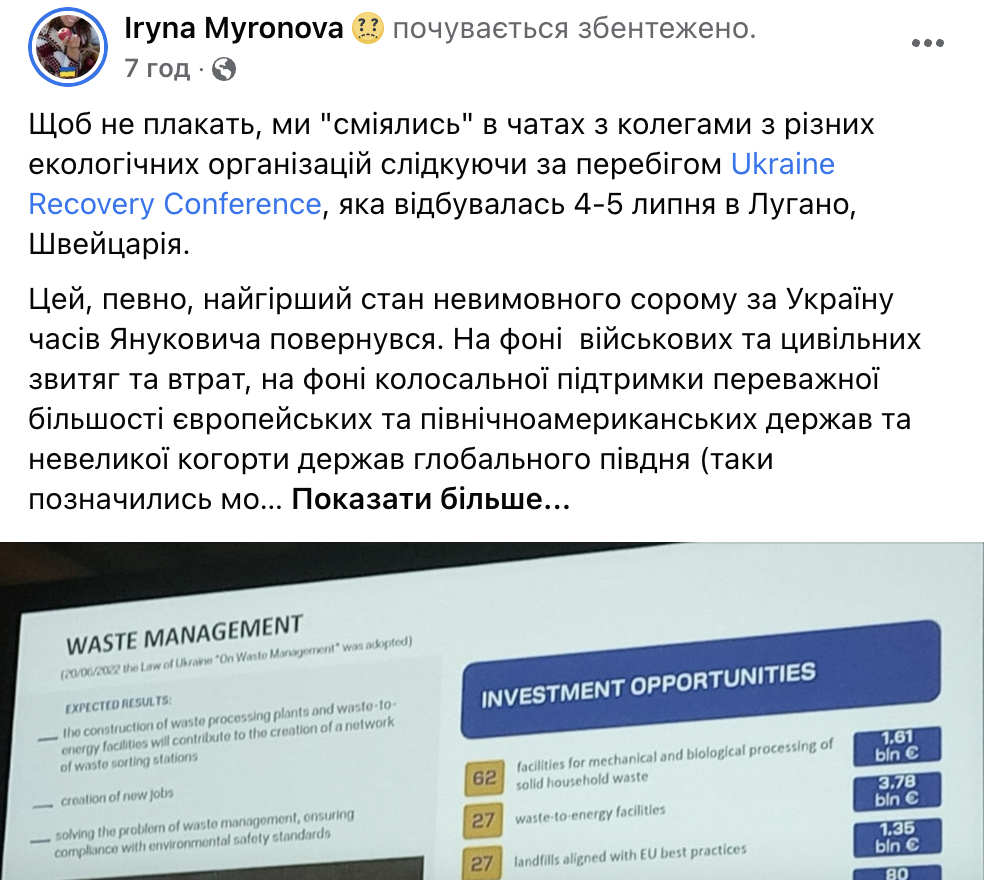
We will remind the Ministry of Environment called amounts and ways to restore nature of Ukraine after the war.
As EcoPolitic reported previously, there are achievements, failures and pitfalls environmental policy of Ukraine for four months of war.


